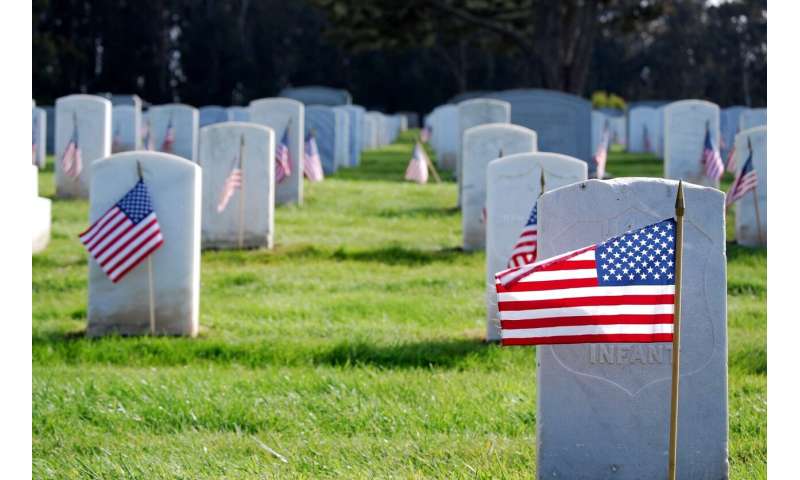

The U.S. Department of Veterans Affairs recently released the 2019 National Veteran Suicide Prevention Report, which showed an increase in the number of veterans who died by suicide in 2017, the latest year with data available.
There were 6,139 veterans who died by suicide in 2017, which was an increase from 6,010 who died in 2016.
“The great tragedy of individuals who die by suicide—whether veteran or civilian—is that they cannot at that moment believe there is a better solution, and they lose hope that everyone who cares so much about them help. Military service, especially during wartime, can expose individuals and families to a variety of traumatic experiences,” says Shelley MacDermid Wadsworth, a professor of human development and family studies and director of the Military Family Research Institute at Purdue (MFRI). “For most people, the psychological consequences of such experiences will resolve quickly. For others, the consequences may be prolonged and require clinical treatment.”
As part of her research, MacDermid Wadsworth studies risk and resilience in military families, as well as works with officials and leaders in the U.S. Department of Defense and other military-related non-profit organizations addressing mental health issues facing veterans, active duty personnel and their families.
MacDermid Wadsworth and MFRI helped create Star Behavioral Health Providers (SBHP), which offers advanced training for behavioral health providers who are then added to a registry to work with military personnel, veterans and their families from all branches, and the National Guard and Reserves. SBHP is currently being expanded throughout the Midwest and the northeast.
Source: Read Full Article